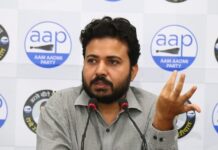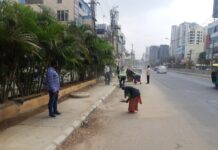New Delhi, The second phase of Delhi power distribution company BSES’ Solar City Initiative was launched by Delhi Power Minister Satyendar Jain on Sunday.
This phase, which will cover the Shakur Basti area, follows the success of the first phase started by the company in Dwarka where around 100 housing societies and apartment complexes have signed up for the initiative, a BSES release said.
“The Shakur Basti area is home to several colonies and has a substantial rooftop solar potential of around 15 MWp. BRPL (BSES Rajdhani Power Ltd) is targeting to realise around 5 MWp of rooftop net metering from the area by 2019-20,” it said.
Under the first phase in Dwarka, “around 25 societies having installed solar capacity of 1.5 MWp have already been energised or are about to be energised. The work at the remaining societies is at different stages”, it said.
“The rooftop soalr tariff identified through competitive bidding in the case of Dwarka residents was Rs 2.66/kWh (kilowatt hour) net of generation based incentive and is around Rs 2.50/kWh less than the electricity tariff,” it added.
The Solar City initiative, launched in January, is being implemented by BRPL in collaboration with Deutsche Gesellschaft fur Internationale Zusammenarbeit (GIZ India) under its Indo-German Solar Partnership project.
Commenting on the development, BRPL Chief Executive Amal Sinha said: “The programme also aims to educate consumers about the benefits of solar energy while ensuring strict quality compliance of the systems being installed. It is also facilitating various finance options available to the consumers.”
Earlier this year, BSES said it had energised a record over 1,000 rooftop solar connections in the city, including the Lotus Temple and the Maulana Azad Medical College, with a sanctioned solar load of over 40,000 KW (40 MW).
Besides helping the company in meeting its renewable purchase obligations, the initiative will help the it minimise overloading issues in congested areas during the peak summer months, BSES said.









